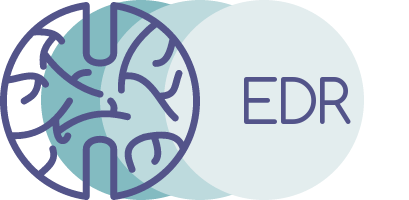E D R
The Five Pillars
Positive Behaviour Support
Behaviour for Learning
Token Economy
Restorative Justice
Student Voice
Positive Behaviour Support
Positive Behaviour Support
Positive behaviour support (PBS) is a term used to describe behaviour management approaches that are underpinned by a belief that negative behaviours serve a purpose or function and are maintained by reinforcement in the environment.
The assumption underpinning Positive Behaviour Support is that behaviour is observable, is learnt through the environment, and can be changed or modified using appropriate positive and negative reinforcement. Teaching is a central behaviour change tool within Positive Behaviour Support.
Behaviour for Learning
Behaviour for Learning
Behaviour for Learning (B4L) approaches behaviour from a relationship or ecosystemic viewpoint. The three relationships that need to be positively developed within this model are the pupils’ relationships with:
- Themselves (Engagement) – a pupil who does not feel confident as a learner and who has ‘internalised’ a view that s/he is unable to succeed as a learner will be less likely to demonstrate Positive Behaviour for Learning;
- Others (Participation) – all‘behaviour’ needs to be understood as ‘behaviour in context’. Behaviour by pupils is triggered as much by their interactions with others (pupils, teachers or other adults in schools/settings) as it is by factors internal to the child; and
- The Curriculum (Access) – pupil behaviour and curriculum progress are inextricably linked. Teachers who promote a sense of meaningful curriculum progress in learning for each pupil will be more likely to create an environment where Positive Behaviour for Learning is the norm.
Token Economy
Token Economy
Token Economy is the awarding of tangible tokens as positive reinforcement to pupils for completing tasks or adopting positive behaviour and attitudes.
The basic principle is that a pupil earns a certain number of tokens by engaging in desired behaviours (target) which can then be exchanged – effectively using them as payment – to gain access to backup reinforcers (rewards).
Examples of tokens typically used in schools are stickers collected on a personalised chart, or house points tallied to access rewards.
Restorative Justice
Restorative Justice
The fundamental premise of restorative practice is that people are happier, more cooperative and productive, and more likely to make positive changes when those in authority do things with them, rather than to them or for them.
Restorative practice includes the use of informal and formal processes that proactively build relationships and a sense of community to promote good behaviour and self-discipline.
These informal processes are most clearly evidenced in an approach to negative behaviour that seeks to acknowledge responsibility for the harm caused, identifies how people are affected, and promotes the repair of relationships.
Student Voice
Student Voice
Student Voice is a framework for more meaningful student engagement in schools.
Student Voice provides children and young people with systems and structures to enable them to contribute to policy and practice and have a genuine role in designing their learning environment and curriculum on the premise that when they are more actively engaged in the system, they are more likely to actively engage with the system.
